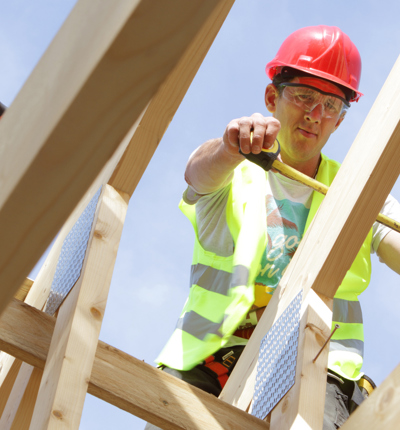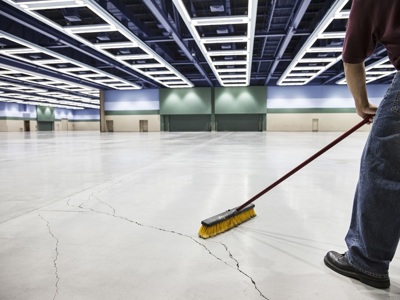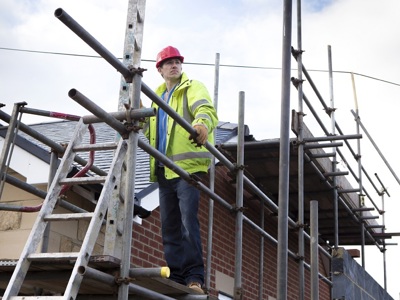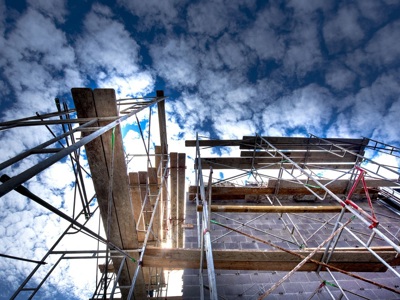
Falling from height claims
Find out if you can make a fall from height claim for injuries sustained at work.
Falling from height can cause serious injuries and is the single biggest cause of fatalities at work. It can shorten careers, and even lives.
When an occupation involves working at height, from ladders, cherry pickers, mobile elevated work platforms (MEWP) and similar, employers should be taking care to look after workers, by ensuring the right safeguards and regulations are in place and that all work at height is properly planned.
If you or a family member has suffered a fall from height at work, you could be entitled to personal injury compensation. Following an injury sustained from a high fall, reach out to our experienced falling from height claims team as soon as you can and we’ll investigate your claim.
What is a falling from height claim?
Even in the safest conditions, working at height still comes with its risks. You or a family member can make a claim for injuries sustained by falling from height in the workplace.
Some occupations involve more time spent working at height than others. Roofers, some construction workers and window cleaners, for example, may spend much of their working day working from great heights.
If the worst should happen and you sustain an injury by falling from height in the workplace, which your employer could reasonably have prevented, you could have a claim for compensation.
Your employer’s responsibility
There are key pieces of legal legislation which set out employers’ duty to protect their employees from harm.
Working from heights is particularly dangerous and there are specific laws to protect workers from death and falling from height injuries.
Employers must ensure the following are in place so employees can work safely.
- Working from height should be thoroughly planned and carried out by competent people.
- Employers must also ensure work is supervised by competent people.
- Employers must ensure that the appropriate type of equipment is used for these tasks.
- Workers should have the correct equipment to minimise the risks of a fall, such as safety nets, fall arrests, guards and or harnesses.
- Employers must provide training on the correct use of equipment.
- Employers should also consider whether work at height can be avoided by providing alternative equipment, for example installing cables at ground level, or using extendable tools from the ground to avoid having to use a ladder.
Employers whose workers regularly make use of ladders, scaffolding and cranes should ensure standards of safety are being enforced throughout the workplace.
Laws on falling from height
The Health and Safety at Work Act 1974
The 1974 Act was designed to ensure employees had a safe working and environment, and would be supplied with the information and training they needed to carry out their work safely. It also tasks employers with ensuring risk assessments are carried out when faced with potentially risky work.
The Work at Height Regulations 2005
The Health and Safety Executive developed the rules more specifically around working at height. Their express purpose is to prevent death and injury. Employers should follow the guidance around risk assessment, as well as making sure working equipment is safe and the work is properly supervised.
What to do if you’re injured at work
Find guidance from our injury lawyers
The first thing to do is seek treatment – your health takes priority.
If you do need to go to hospital, ensure that the doctor you see first gets a good account of the accident.
Speak with your own GP as soon as you can to make sure they have an accurate report of the accident too.
Your medical records will be requested as your claim progresses.
Speak with a specialist accident at work solicitor as soon as you can. You have three years from the date of your accident to start Court proceedings so it’s important to find out whether it’s an option you wish to pursue quickly.
Report the accident to your employers as quickly as possible. Ask for a copy of the accident book entry – this will become important evidence.
If you are caused to be absent from work for over 7 days, or the incident results in a fatality or severe injury, your employer has a duty to report matters to the Health and Safety Executive (HSE).
Depending on the circumstances, severity and type of injury you suffered, the Health and Safety Executive (HSE) might launch an investigation, which could lead to a prosecution of your employer.
You don’t have to make a statement to your employers about the accident, apart from a brief report which is entered in the accident book. We wouldn’t advise making a signed statement, especially in the period immediately after the accident.
Report your accident to the Department for Work and Pensions (DWP). This will help you to make an application for state benefits.
Get the details of any witnesses to your accident and pass this information to a specialist work injury lawyer as soon as you can.
Ask a safety representative, perhaps a shop steward, to take photos of the accident scene.
Take photographs of the incident location and your injuries as soon after the accident as you can, and regularly throughout your recovery.
Our work with fall from height injury claims
We secured compensation for the bereaved family of a man who fell 23 metres from the platform of an industrial boiler at work.
Our fall from height injury claims team liaised with the authorities investigating the death, organised representation at the inquest and issued a compensation claim against the various companies working on the site where the fatality occurred.
Once criminal proceedings had concluded, the civil claim for compensation was settled.
What our clients say
For many my husband’s death is just another statistic. For me, it is an irreversible tragedy that has changed my life forever”
Our client following her husband's death




